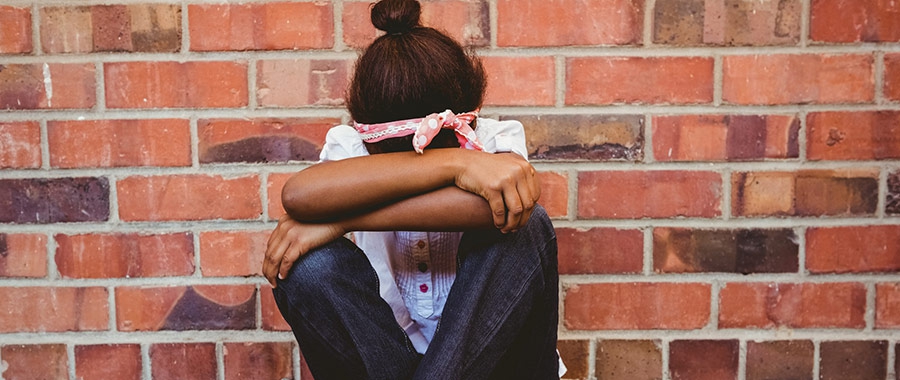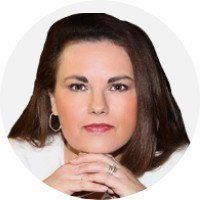The views expressed in our content reflect individual perspectives and do not represent the authoritative views of the Baha'i Faith.
Between the ages of 2 and 5, my stepfather molested me. At six, I was molested by a stranger. I was trained to be powerless and voiceless, and I became quite good at it .
You see, these are things you’re not supposed to reveal to anyone. I can’t tell you if threats were made, but I can tell you that throughout my early childhood I felt dirty and ashamed, like I had done something wrong. I didn’t know then that I had started to dislike myself for not having the power to say no–to find my voice.
This did not get better for a long, long time. I’ll be honest, I still struggle with it today.
All the way through school, I was bullied. This is how I know that I became good at being voiceless and powerless. When I lost my voice and my power starting at the age of two, I became passive and submissive to anyone and everyone that wanted to push me around, or swear at me, or call me names and take what they wanted from me—and take they did.
They took my dignity, they took my strength, they took my things, they took my ability to control what happened to me and they took my self-esteem.
But because I had lost my power at such a young age, they didn’t always wrestle it from me. Most times, I just handed it to them. Because I had been trained and conditioned to say yes, no matter how I felt. I was not allowed to say no, even though others were.
This made me angry, resentful, bitter, hateful and vengeful. It made me sad, mistrusting, and lonely. I hated myself and my life.
But then something happened. I made a new friend. I had so few trustworthy friends at this point that she really mattered. We became inseparable. She was fearless and strong and everything I was not. We’re still friends after 35 years.
Because of her, I learned to say no—and that nothing bad would happen when I did. Through her I learned to stand up for myself and find my voice. It took a long time, but I slowly found my power.
I’m still learning. I still struggle.
Now, as a Baha’i, I try to apply the lessons I’ve learned to my spiritual life. Baha’is believe in unity, and actively work towards achieving the unity of humanity, the unity of religion and the unity of the planet.
I’ve found, as I’ve tried to practice achieving unity, that many people believe and will tell you that in the moment when you need to use your voice the most, the best way to preserve unity is to keep quiet. We need to stop perpetuating this myth. By losing my voice and feeling powerless to speak at the risk of being dis-unifying, I am not building unity. Unity does not mean uniformity—that I have to agree with you at all times, even when I don’t:
[The] oneness of humankind, which in the words of Abdu’l-Baha, is “the gift of God to this enlightened age,” constitutes the cornerstone of Baha’u’llah’s dispensation. Here a pitfall should be warned against. Unity and uniformity are two different themes. Uniformity is deadening. It paralyzes human faculties, and dries up all fountains of originality and creative thought. Baha’u’llah never supported the idea of uniformity. By comparing the world and its multi-forms of race, nationality and language, to a garden effulgent with varieties of plant life, Abdu’l-Baha showed the undesirability of reducing all to one type. One of the glories of Baha’u’llah’s World Order is the fact that it sanctions “unity in diversity.” – Hasan Balyuzi, Star of the West, Volume 10, p. 166.
How many times have you heard or been told that to stay silent is to “keep the peace,” as if it is your reaction to someone’ s unkind, hurtful and bullying behavior that becomes the real barrier to unity?
Silence does not preserve unity. Diversity of opinion does. Honesty does. Candor does.
That means we should talk and consult, and it does not mean that we should acquiesce when confronted with a bully. I know this, because the Baha’i teachings also say that we should stand up against a bully and those who behave like tyrants:
The Kingdom of God is founded upon equity and justice, and also upon mercy, compassion, and kindness to every living soul. Strive ye then with all your heart to treat compassionately all humankind—except for those who have some selfish, private motive, or some disease of the soul. Kindness cannot be shown the tyrant, the deceiver, or the thief, because, far from awakening them to the error of their ways, it maketh them to continue in their perversity as before. No matter how much kindliness ye may expend upon the liar, he will but lie the more, for he believeth you to be deceived, while ye understand him but too well, and only remain silent out of your extreme compassion. – Abdu’l-Baha, Selections from the Writings of Abdu’l-Baha, p. 158.
Telling someone to remain quiet in order to “keep the peace” is just another way of stealing their voice—and not just today, in this situation, but tomorrow, in other situations as well.
You May Also Like
Comments

















Silence prolonged my conflicted state at the time, and thank goodness now professional counselors exist.
Thank you for openly sharing.
I'm very ...happy to have read your article and I posted it on FB.